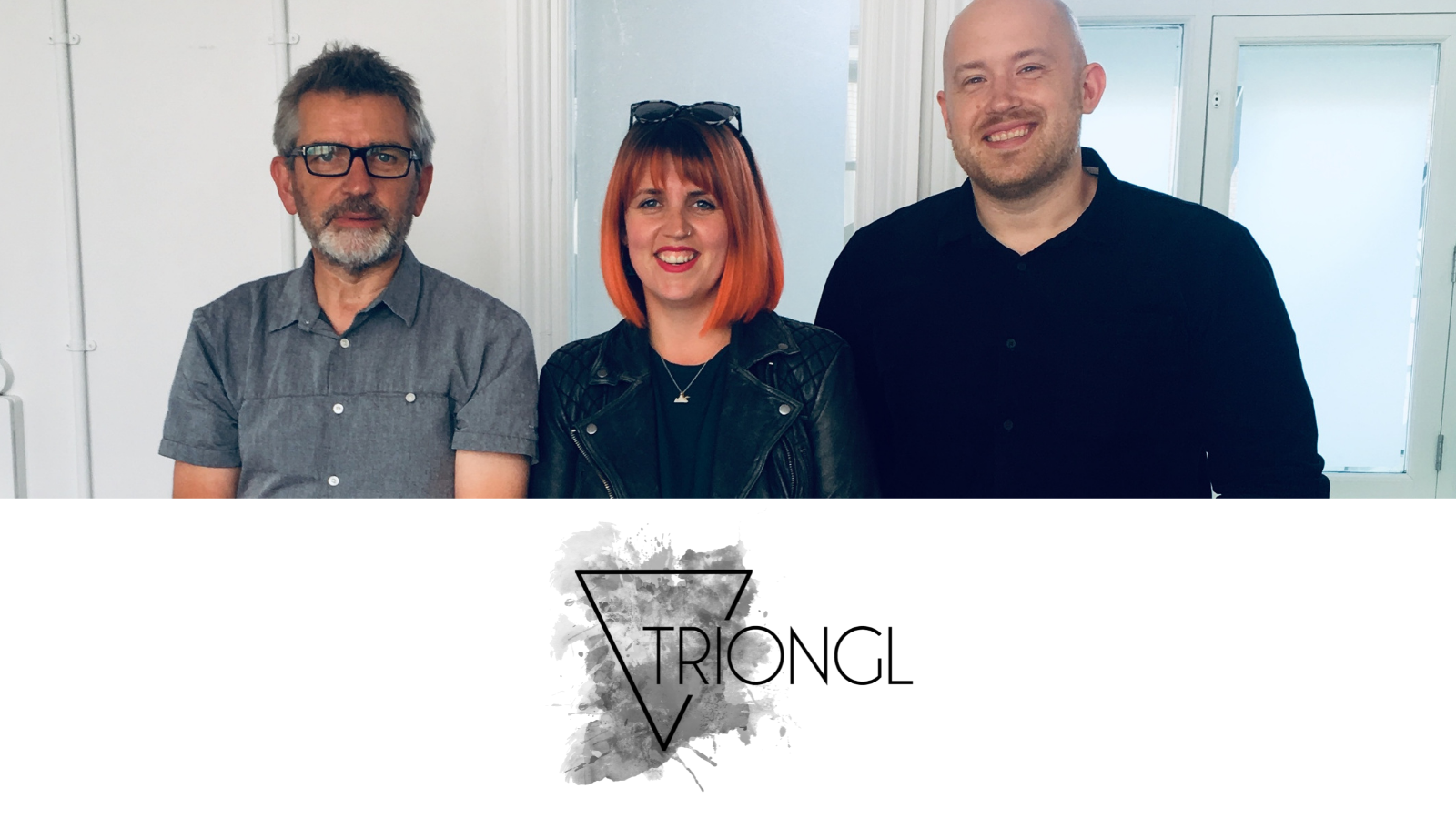Hi Nora. How would you describe Triongl and what it does?
Triongl is a television and film production company branching out into innovation. We specialise in drama. We most recently produced ‘Y Golau’/’The Light in the Hall’ for Channel 4 and S4C in the UK and ‘Sundance Now’ in the US. Our new venture has grown from our production expertise and our desire to revolutionise the workplace by designing people-centred innovation for the production industry. Our vision is for a kinder workplace that centres mental health and wellbeing and sustainability while also increasing efficiency.
How did you find out about the Clwstwr funding?
We attended the launch event for Clwstwr back in 2019.
What inspired you to apply for funding?
We were inspired by the intentions set out and the possibilities provided. There didn’t seem to be anyone else funding these kinds of projects or encouraging R&D within the creative industries.
Explain what you were aiming to do in your application
We initially applied for seed funding to explore the possibility of setting up a consultancy for back-to-back production (i.e. the method of producing two language versions of the same show simultaneously) - a method used routinely in Wales but less so in other territories.
Describe the process you’ve been through since receiving the funding
We were initially awarded £10,000 to conduct a feasibility study. We teamed up with the design and innovation research institution PDR to conduct a deep dive into the way we work and the possibilities within. It soon became evident that the scope was broader than we’d initially conceived. The nucleus of our production tech platform, Tri, was born.
Off the back of our findings, we applied for project funding and were awarded £50,000 to conduct intensive deep research. We utilised our most recent production, 'Y Golau’/’The Light In The Hall' as a test case, undertaking an extensive research programme to evaluate the areas where we could streamline and improve the production process and pinpoint areas where greater value could be added in back-to-back productions.
Our extensive R&D identified four key areas for concern ripe for improvement, namely:
Language
Wales has a skilled bilingual workforce; in a recent survey, 37% of those working in the screen sector in Wales identified as fluent Welsh speakers, well above the national average of 18%. There is currently no production management software that supports multilingual productions.
Environment
In 2022 Wales became the first region to take part in the Screen New Deal Transformation Plan - an initiative to bring the screen industries to Net Zero. Waste (e.g. of paper) is one of the industry’s biggest problem areas after fuel consumption, so a digital alternative to paper processes is needed.
Efficiency
Film and TV production is a very hierarchical, old method of working, where duplication of outdated manual admin processes is near constant. This unnecessary work adds huge pressures to individuals.
Wellbeing
The UK screen sector is suffering a mental health crisis. A 2022 Looking Glass report noted that 60% of those working in the industry had thought about leaving the sector due to mental health concerns. Long and inflexible working hours along with toxic working conditions have contributed to poor attrition rates. Something needs to be done to save the industry.
Having identified the problem, we collaborated with Sugar Creative to prototype our solution - a pioneering digital platform for television productions, Tri.
What would you say were the main outcomes of the R&D?
We identified key problem areas, thought up solutions to improve the industry and made a prototype platform. Through Tri, we can improve efficiency, enhance working conditions and add value to any type of TV and Film production working in multiple languages, whether following the back-to-back model or simply in a multilingual environment where more than one language is used on set or behind camera.
Where do you think you’ll go next, having carried out the R&D?
The consensus within the creative industries is that more needs to be done to improve mental health and reduce the carbon footprint of the production process, and we believe Tri can have a positive impact on both, all whilst making the job easier and more streamlined for all who work in production. We are at the point now where we are seeking additional funding to build the platform, conduct rigorous live testing before taking Tri to market.

